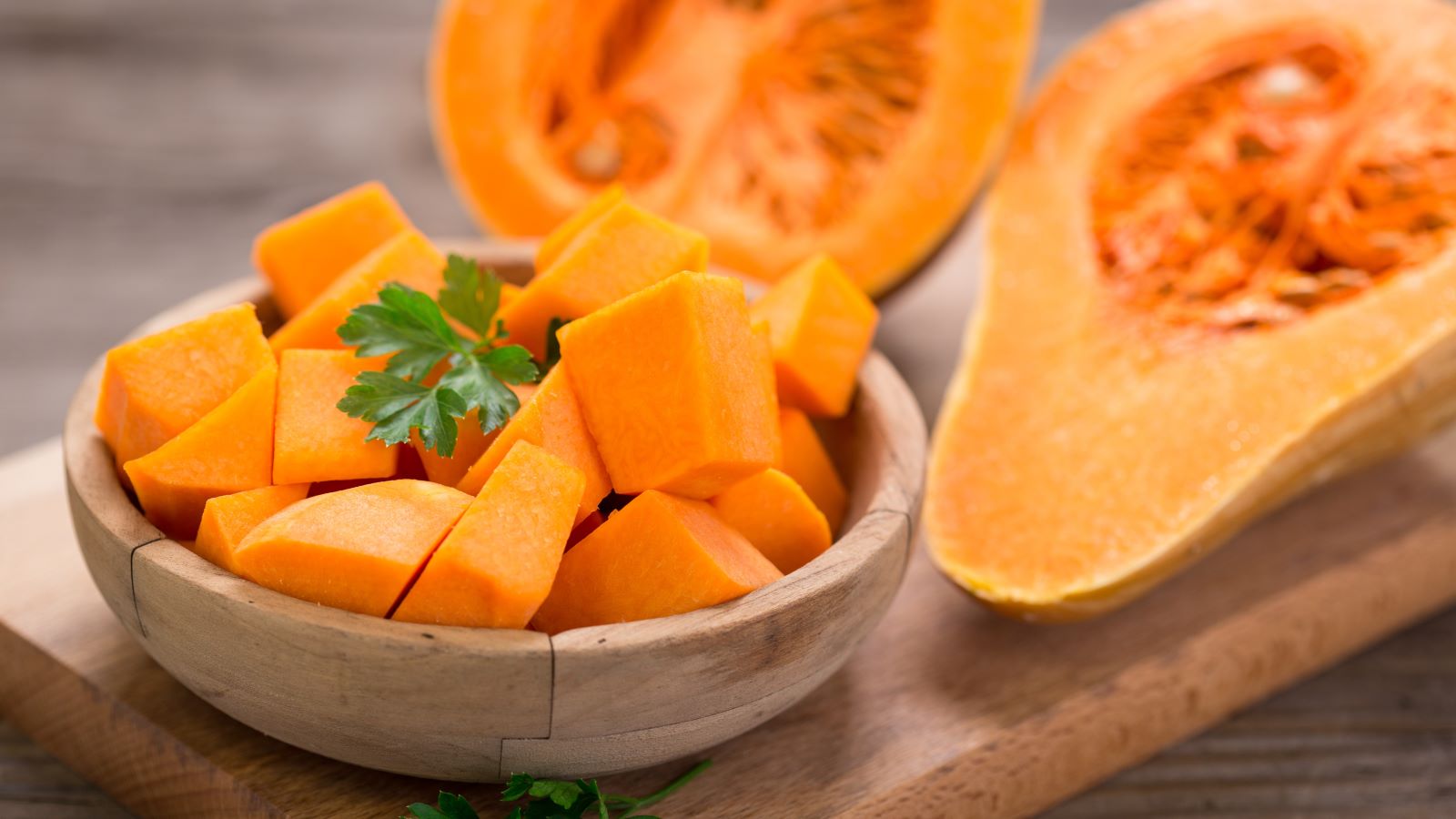<< Back
5 Reasons to Eat More Squash

September 30, 2024
Squash isn’t just for fall—it’s a nutritious, versatile food that deserves a spot on your plate all year long. Packed with vitamins, fiber, and antioxidants, it’s a powerhouse ingredient that can be used in everything from soups to side dishes.
We turned to BreAnn Erickson, CDN, a bariatric dietitian with Hartford HealthCare Digestive Health Institute, to explain why squash is such a nutritional standout and how to incorporate it into your weekly meal plan.
> Related: 4 Ways to Put Your Fresh Vegetables to Work
5 reasons to eat more squash
1. Squash is great for your eye health.
Your eye doctor might be impressed.
“Squash is packed with beta carotene (vitamin A) and vitamin C,” says Erickson. “These nutrients are essential for eye health and can help slow the progression of age-related macular degeneration.”
But wait, aren’t carrots the orange heroes for eye health?
“While carrots are known for their vitamin A content, a serving of butternut squash or pumpkin delivers almost twice the beta carotene of carrots,” Erickson explains.
2. Squash can help your digestion.
Could your digestion use a little boost?
You’re not alone, says Erickson. Digestive health is a common concern, especially since many people fall short of the daily recommended fiber intake, which is essential for keeping things moving smoothly.
“With its high fiber content, squash can help you meet your fiber goals, support digestion and keep you feeling your best,” says Erickson.
3. Squash has powerful antioxidants.
If antioxidants are the fountain of youth, squash is ready to deliver.
“Like other antioxidant-rich fruits, squash can help reduce harmful oxidative stress and inflammation,” says Erickson. “It may also lower the risk of chronic diseases and some cancers.”
By adding squash to your diet, you also add a layer of defense against conditions like heart disease, cancer, and cognitive decline.
4. Squash is seasonal.
Squash comes in two main varieties: winter and summer. But is there a difference?
“Winter squash tends to pack more nutritional punch, offering higher amounts of vitamins C, A and fiber than summer squash,” says Erickson. “But they also contain more starch.”
Winter squash varieties like butternut, acorn and spaghetti squash are harvested in the late fall and can be stored for months. And the extra starch makes them a hearty choice during colder months when you’re craving comfort food.
5. Squash is a tasty alternative to carbs.
Whether you’re cutting carbs or just looking to switch things up with lighter meals, squash is your new best friend.
“It’s a great substitute for traditional carbs in many dishes,” says Erickson. “Spaghetti squash, for example, makes an excellent pasta replacement, giving you the same satisfying texture but with fewer calories and carbs.”
But squash isn’t just limited to pasta swaps. You can use it as a base for casseroles, mash it like potatoes, or even slice it into thin ribbons for a lighter lasagna.
Here’s how to add more squash to your diet.
“There are so many varieties of squash, but they’re all healthy and versatile—so pick your favorite,” says Erickson.
Here are some delicious ways to add squash to your meals:
- Redefine Italian night: Make a “lasagna” using roasted spaghetti squash, marinara, mozzarella and basil.
- Elevate your mac n’ cheese: Try butternut squash mac n’ cheese for extra nutrients and irresistible flavor.
- Impress your dinner guests: Serve stuffed acorn squash with apples and sausage for a crowd-pleasing meal.
- Create an easy weeknight go-to: Baked parmesan yellow squash makes for a cozy dinner.
The best part? These meals won’t break the budget—or take up your time.
“Squash is inexpensive, and you can find it prepped in the produce or freezer section,” Erickson adds. “Less time in the kitchen means more time to enjoy your night!”